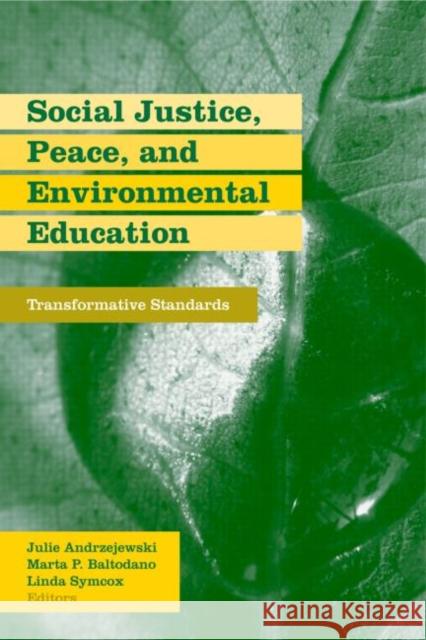Social Justice, Peace, and Environmental Education: Transformative Standards » książka
Social Justice, Peace, and Environmental Education: Transformative Standards
ISBN-13: 9780415965576 / Angielski / Miękka / 2009 / 14 str.
The concept of "standards" seems antithetical to the ways critical educators are dedicated to teaching, but what would "standards" look like if they were generated from social justice perspectives and through collaborative and inclusive processes? Such is the central question posed by the contributors of this groundbreaking collection on the interconnectivity of social justice, peace, and environmental preservation. Challenging education that promotes consumerism, careerism, and corporate profiteering, they boldly offer examples of a new paradigm for practicing a transformative critical pedagogy. Rather than just talking about coalition building within and across educational communities, they demonstrate how we might communicate from different vantage points and disciplinary boundaries to create a broader picture of social and eco-justice. Social Justice, Peace, and Environmental Education will be required reading for educators and students who want to envision and practice living, acting, and teaching for a better world.
Based on collaborative work devoted to social justice issues, this collection provides a broad-ranging and thoughtful discussion of what standards developed from an inclusive social justice perspective might look like. The contributors begin from the stand point that current educational policies are helping to increase global corporate domination, militarism, economic disparity, environmental destruction, and the repression of democracy and dissent. The ideas presented in their chapters offer an alternative view to this prevailing orthodoxy, a new discourse for integrating social justice, and environmental sustainability into the formal academic curriculum propelled by a sense of urgency for change. By appropriating the language of standards in particular, this set of principles provides a unique framework for actually implementing social justice goals, and perhaps more importantly, for redirecting educational discourse about accountability to include such consequential "bottom-line" factors as social justice, peace, and environmental sustainability.











